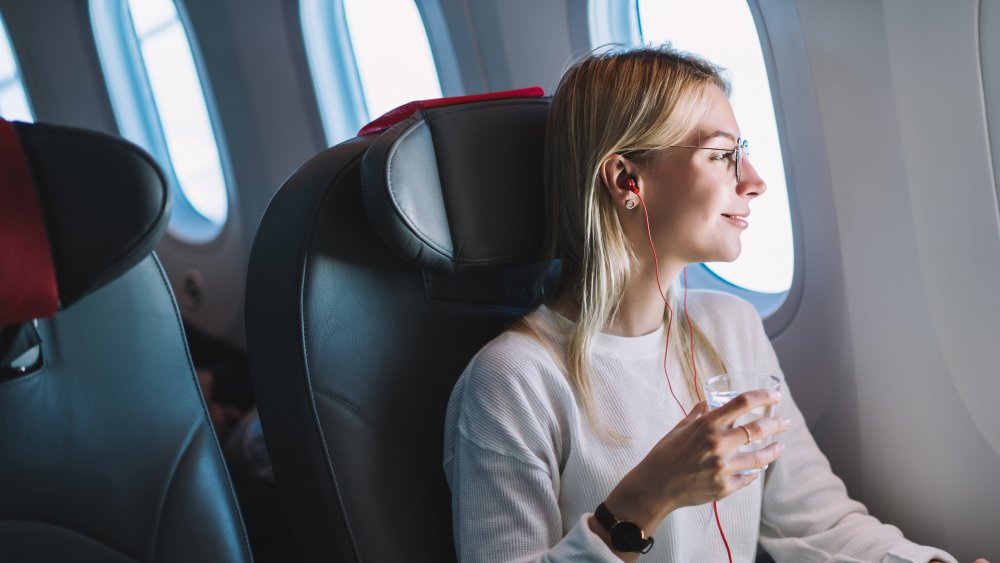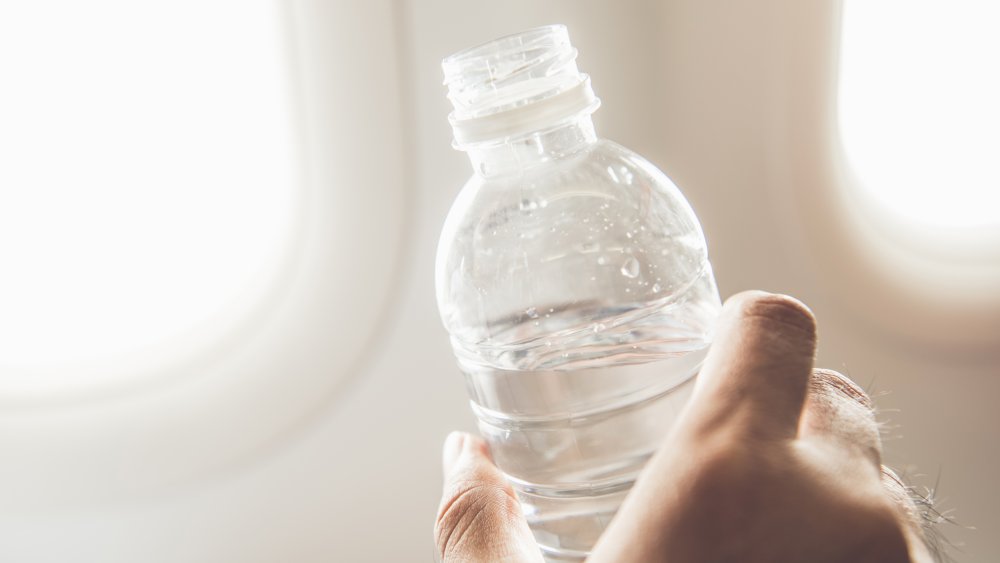Why You Should Avoid Water On Your Next Flight
We all know how important it is to stay hydrated while traveling via airplane, but it turns out that it's probably best to avoid drinking airplane tap water and beverages made with said tap water. According to a 2013 investigation by NBC, the Environmental Protection Agency (EPA) started a campaign to ensure the safety of planes' drinking water after a sample of 300 planes showed 15 percent of them tested positive for coliform, which in turn indicates that other, potentially harmful, bacteria might also be present in the water. Follow-up tests in 2012 showed that the efforts to improve water quality had proved mostly unsuccessful, with 12 percent of tested planes returning positive coliform results.
Coliform alone is not likely to make anyone sick, but it can serve as a warning that other, more harmful bacteria such as E. coli may have made its way into the water supply. The EPA now requires airlines to test planes annually for both coliform and E. coli, and a positive test for either requires the plane to flush its tanks and re-test the water, restricting access to water until tests show the bacteria is gone.
Don't drink the water?
The EPA notes that they haven't received any reports of people getting sick from drinking airplane water, but NBC claims doctors say that doesn't mean it hasn't happened. It would be hard to trace an illness back to drinking water served on a plane. NBC also describes pictures from the Food and Drug Administration that show "slimy residue growing on the nozzles that supply airplane water," which could also spread bacteria into the planes' water tanks.
A more recent test doesn't show much improvement. Healthline references the work of Dr. Charles Platkin of the Hunter College New York City Food Policy Center and his 2019 Airline Water Study. Since 2011, airlines have had to follow the Aircraft Drinking Water Rule and provide safe drinking water for passengers and flight crew. The EPA has been slow to release data regarding their enforcement of this rule, however, and Dr. Platkin found that it's a rarity for the EPA to fine an airline for unsafe water on an aircraft. Nevertheless, Dr. Platkin and his team looked at available data and ranked national and regional airlines on a scale from 1-5, with a low score indicating the presence of bacteria. Just four airlines tested above a 3. Dr. Platkin's conclusion? "As a traveler myself, I wouldn't touch the water." Researchers advise sticking to bottled water on airplanes. You should also avoid coffee and tea that are made onboard.

